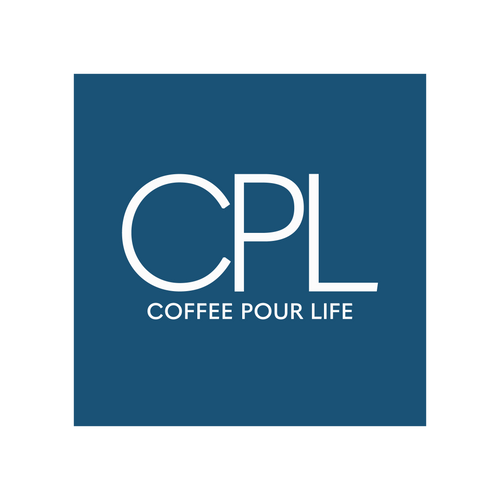There’s nothing worse than starting your day with a cup of coffee that’s bitter and unpleasant. But don’t worry—there are simple reasons behind this common issue, and even better, easy fixes to ensure your coffee is smooth and flavorful every time.
Let’s explore the main causes of bitter coffee and how to avoid them.
1. Over-Extraction
When you brew coffee, water extracts flavors from the coffee grounds. Over-extraction happens when the water draws out too much from the coffee, including bitter compounds.
How to Fix It:
The right brew time and grind size can make all the difference in avoiding bitterness. Here are the recommended guidelines for popular brewing methods:
-
French Press:
- Brew Time: 4–5 minutes
- Grind Size: Coarse (resembles sea salt)
-
Pour-Over (e.g., Chemex, Hario V60):
- Brew Time: 3–4 minutes
- Grind Size: Medium (similar to granulated sugar)
-
Espresso:
- Brew Time: 25–30 seconds
- Grind Size: Fine (slightly finer than table salt)
-
Cold Brew:
- Brew Time: 12–24 hours
- Grind Size: Coarse (like French press)
-
Drip Coffee Maker:
- Brew Time: 5–8 minutes (depends on machine)
- Grind Size: Medium (like granulated sugar)
-
Moka Pot:
- Brew Time: 5–10 minutes (entire process, including heating)
- Grind Size: Fine (slightly coarser than espresso)
2. Water Temperature
Brewing coffee with water that is too hot can scorch the coffee grounds, resulting in a burnt, bitter taste. The ideal water temperature for brewing coffee is between 195°F and 205°F.
How to Fix It:
Avoid boiling water directly on the coffee grounds. Let the boiled water cool for 30 seconds before brewing. For precision, use a thermometer or an electric kettle with temperature control.
3. Using Low-Quality Coffee Beans
Not all coffee beans are created equal. Low-quality or stale beans often contain harsher flavors that contribute to bitterness.
How to Fix It:
- Choose high-quality beans from a trusted roaster. Trusted roasters prioritize sourcing the highest-quality beans, which can impact your coffee’s flavor and overall enjoyment. Here's why their beans stand out:
-
Careful Selection: Artisan roasters often choose beans grown in optimal climates, at the right altitude, and from specific regions known for producing exceptional coffee.
-
Ethical Sourcing: Many trusted roasters work closely with farmers to ensure ethical practices and premium quality, often paying above fair-trade prices.
-
Specialty Grade: High-quality roasters frequently work with specialty-grade beans, which represent the top percentage of coffee produced worldwide. These beans are free of defects and deliver a superior cup.
-
Flavor Profiles: Trusted roasters develop roast profiles that unlock the distinct flavors of each bean, whether it’s the bright citrus notes of an Ethiopian or the deep, earthy richness of a Sumatran coffee.
-
Unopened ground coffee can be stored for 3 to 5 months, while whole-bean coffee can last 6 to 9 months.
4. Improper Coffee-to-Water Ratio
Using too much coffee relative to water may result in an overly strong and bitter brew.
How to Fix It:
Here are the “golden ratios” for some of the most popular brewing methods. Think of these as friendly suggestions to get you started. Remember, these aren’t strict rules—how your coffee tastes in the end is what truly matters. Enjoy experimenting to find your perfect brew!
- French Press: (Ratio: 1:15 to 1:17)
- Grams: 15–17g coffee per 250ml (8oz) water
- Tablespoons: 2–3 tbsp coffee per 8oz water
- Pour-Over: (Ratio: 1:15 to 1:17)
- Grams: 15–17g coffee per 250ml (8oz) water
- Tablespoons: 2–3 tbsp coffee per 8oz water
- Espresso: (Ratio: 1:2)
- Grams: 18–20g coffee for 36–40ml water (double shot)
- Tablespoons: ~3–4 tbsp coffee
- Cold Brew: (Ratio: 1:5 (for concentrate))
- Grams: 200g coffee per 1L water
- Tablespoons: ~16 tbsp coffee per 4 cups water
- Drip Coffee Maker: (Ratio: 1:15 to 1:17)
- Grams: 15–17g coffee per 250ml (8oz) water
- Tablespoons: 2–3 tbsp coffee per 8oz water
- Moka Pot: (Ratio: 1:7 to 1:10)
- Grams: 18–20g coffee for a 6-cup pot
- Tablespoons: ~3–4 tbsp coffee
5. Old or Dirty Equipment
Coffee oils and residue can build up in your equipment over time, leading to off flavors in your brew.
How to Fix It:
- Clean your coffee maker, French press, or espresso machine regularly.
- Use a descaling solution to remove mineral buildup if you’re using hard water.
6. Roast Level
Dark roast coffee often has a more bitter profile due to its longer roasting process, which brings out smoky and burnt notes.
How to Fix It:
- Try a medium or light roast for a smoother, brighter flavor.
- Experiment with different roasters and origins to find your preference.
7. Experiment and Adjust
Every coffee drinker’s taste is unique. Don’t hesitate to experiment with grind size, brewing time, and bean selection to discover what works best for you. Keep a journal of your coffee experiments to track what makes your perfect cup.
Conclusion
Bitter coffee doesn't have to be your daily reality. By addressing these common causes and making a few simple adjustments, you can transform your brewing routine and enjoy a cup that's rich, balanced, and delicious.
At Coffee Pour Life, our mission is to help elevate your coffee experience. Check out our selection of artisan beans, brewing tools, and helpful guides to make every cup extraordinary.
Happy brewing! ☕


